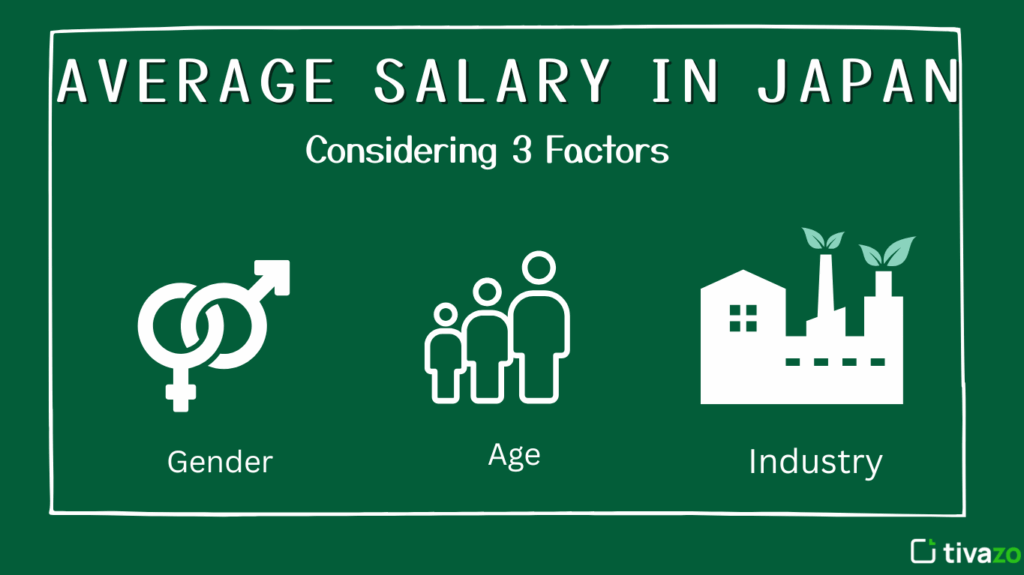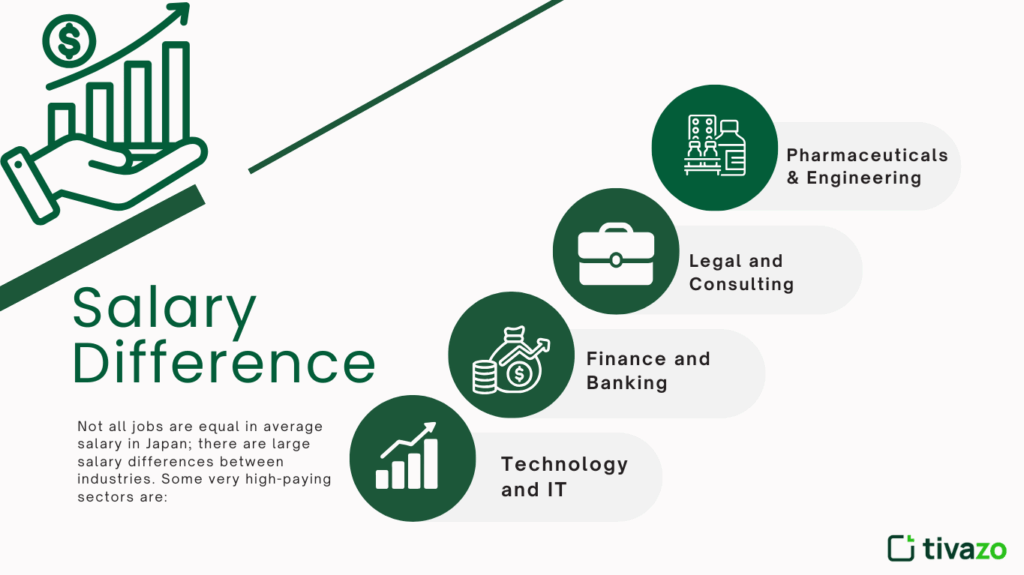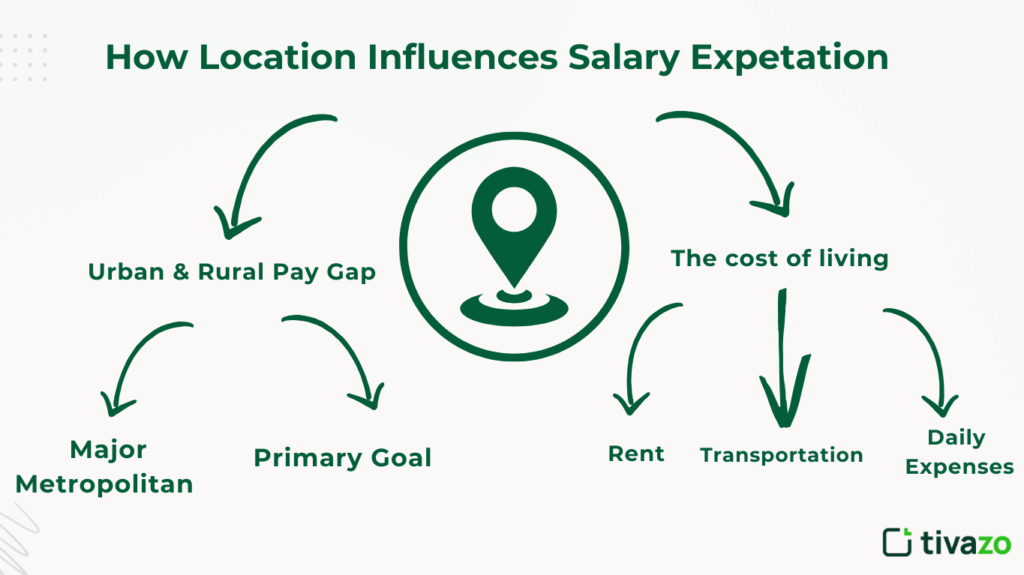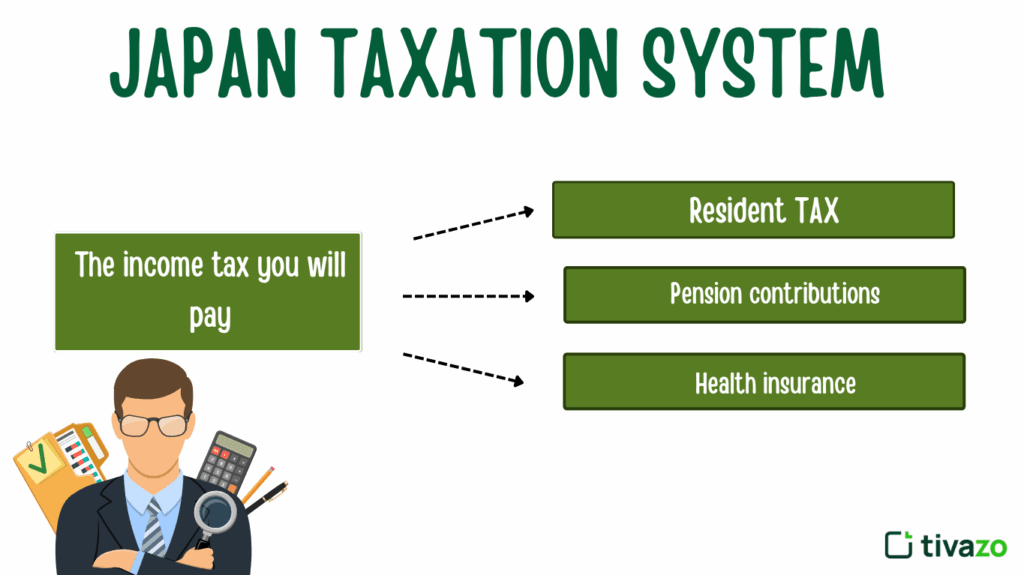Japan is in a unique position in the evolution of its workforce planning in the year 2025. There have been many changes due to technology improvements, an ageing society, an emphasis on skilled labour, and a new style of employment – one in which both foreign workers and local workers are asking the question more and more, what is the average salary in Japan?
Whether you are looking to move, negotiate a new role, or compare salaries in another country, then you must understand how wages work in Japan, so this guide will outline average salaries in Japan right now, what is considered to be a good salary in Japan, whether there is a difference between industries, and whether a $200,000 salary is considered rich in Japan.
How Much is a Good Salary in Japan?
The amount considered a “good” salary in Japan varies based on several factors, including job type, age, location, and lifestyle. In general, for young professionals working in highly populated cities such as Tokyo or Osaka, a salary of 400,000 to 600,000 yen a month (2500-4500 USD) is often seen as comfortable. Typically, this will allow for suitable rent, meals, transport, socializing, and some savings.
If you are supporting a family or if you would like a more luxurious lifestyle, especially if you are living in Tokyo, you may be looking for something a little more than 700,000 to 1,000,000 yen a month, which will cover international schooling, a bigger house, travel, and eating at nicer restaurants. Hence, an average salary in Japan will make it difficult for a proper family to sustain a luxurious life.
Cost of Living
The cost of living is not standardized across Japan. If you live in Tokyo, the cost of living is, by far, the most expensive; however, Osaka and Yokohama are also expensive. If you live in a rural area or a smaller city in Japan, your cost of living is much lower, so a “good salary” in Japan is very location-dependent.
For example, a salary of 5 million yen a year might seem low in Tokyo, but it would be a reasonable salary in a place like Fukuoka or Sapporo. Your cost of living, debt, lifestyle expectations, and financial goals play a role in how you define a good salary.
Average Salary in Japan
The average salary in Japan in terms of annually is approximately 4.9 million yen, translating to just under USD 33,000. Nonetheless, one must recognize that this figure is merely a statistical average and does not reflect the substantial variations that exist across different demographics. However, numerous factors can come into play here, such as age, gender, position of the work, industry that the particular person is working in. Regardless of the average salary as a benchmark, it should be given a focus on the average salary in Japan.
Gender & Age Influence
On average, the average salary in Japan is higher for men earn more than for women in Japan; this is due to persisting gender pay gaps and gender scientists would also argue that traditional workplace structures. In addition, people in their 40s and 50s tend to earn considerably more than those younger than them. This is due primarily to Japan’s seniority wage system. Young working people may start with low salaries but are paid more as they gain employment tenure.
Industry
High-tech and financial services are more likely to pay above-average salaries, while a field like hospitality, retail, and education pays somewhat below average.
Employment type is another factor. Employees with long-term contracts, known colloquially as “salarymen”, usually command more from the benefits/compensation package than part-time or temporary employees, who are increasing in numbers as part of the Japanese workforce.
In summary, while 4.9 million yen is the nationwide average salary in Japan, many are making much more, particularly in high-demand and specialized fields.

Japan Average Salary 2025
The average Salary in Japan will likely be around 5.2 million yen (~ USD 35,000) in 2025. This seemingly small growth is somewhat reflective of inflation, labor shortages arguing for pay increases, and business reforms that are gradually promoting wage increases in all business sectors.
People with average salary in Japan are trying to hold onto and attract high-skilled workers both locally and abroad. There are developed labor shortages nationally and increased demand for talent in fields such as software development, data and/or machine learning, cybersecurity, green energy, and biotechnology.
Many of the roles in developing sectors that are in high demand will have salaries well above the wages in labor-related and service industries, which are often the entry-level positions into many advanced industries. For instance, a mid-career software engineer can expect salaries in the 6.5 to 9 million yen per year range, while tech and finance support positions at the senior level can expect salaries well above 10 million yen annually.
It is worth noting that, as working from home has become a more normalized work model, the Average salary in Japan’s salary structure is gradually changing as conditions in the economy increase. Employers are willing to pay competitive compensation for global labor regardless of location because labor shortages are present.
Salary Differences by Industry and Occupation
Not all jobs are equal in average salary in Japan; there are large salary differences between industries. Some very high-paying sectors are:
- Technology and IT: Japan’s technology industry is booming, especially in software development, Artificial Intelligence, and cybersecurity roles. These jobs typically start at 6 million yen a year, with many going beyond 10 million yen with experience.
- Finance and Banking: The salaries for investment analysts, traders, and senior accountants are well above average; there are global firms with big offices in Tokyo that will employ expats.
- Legal and Consulting: Salaries for bilinguals in law or consulting will often be over 10 million yen, particularly if you have international certifications or international clients.
- Pharmaceuticals and Engineering: They are specialized skills and are in demand and paid.
The opposite end of the spectrum is education jobs, especially English teaching jobs. Generally, ALT (Assistant Language Teacher) and eikaiwa (conversation school) teachers can expect to earn between 2.4 million and 3.5 million yen a year. This will be adequate if you are a single person living out in the country, but with will not give you any financial breathing room in Tokyo.

How Location Influences Salary Expectations
Location is a considerable factor regarding salary expectations and cost of living in Japan. When it comes to cities like Tokyo or Osaka, both of these locations pay more, but they also cost more. It is typical of smaller cities and regions to earn lower salaries, but that will mostly be offset by living in a much cheaper area.
For example, a software engineer in Tokyo might expect to earn 9 million yen annually, but the same software engineer working for a similar company in a regional city could expect to earn 7 million yen. But on top of that, lower salary, rent, transport, and living expenses will also be considerably less than being based in Tokyo.
If you’re looking at hybrid or remote work options, you can live in a much cheaper area while earning a salary you might find in Tokyo. This is an ever-growing trend with a lot of tech and digital nomad professionals in Japan.
1. Urban vs. Rural Pay Gap
- The Main Idea: Major metropolitan areas in with an average salary in Japan, Tokyo, Osaka, and Nagoya, pay considerably more on average than rural prefectures. This is a fundamental rule of economics in action: places where there is more economic activity, more businesses (particularly large corporations and multinational companies), and where there are more specialized industries are the places to find demand for skilled workers. This leads to higher compensation.
- Why it matters to you: If your primary goal is to maximize your income, looking for a position in a major urban center, such as Tokyo or Osaka, is likely to yield a substantially higher salary offer. For example, a software engineer in Tokyo will more than likely achieve a significantly higher salary than a software engineer in Hokkaido or Okinawa with similar experience. Larger urban centers also have a greater number of positions and competition for workers, which leads to employers competing to offer the best average salary in Japan. It is always important, however, to balance the increased salary level with the cost of living (which is discussed further below).
2. The cost of living in Japan
Regardless of the average salary in Japan varying by city and urban area, it affects the overall cost of various living essentials, such as rent. A similar model is based on the example of prices in Japan.
- Rent: Again, it depends on where you live. For example, a one-bedroom unit in central Tokyo could be ¥150,000-¥250,000, while in a more regional city like Fukuoka, it’s closer to ¥40,000-¥70,000. The difference is insane, and this really drives a lot of the salary difference.
- Transportation: interviewing the job offer for a position dwelling in an urban area, while Japan’s public transportation is excellent; clean-up route to identify langkah pengamatan-commercial transportation to and from work: it may be slower or more expensive than working in a smaller city with less challenging distances or ownership of private possessions.
- Daily Expenses: While basic groceries might be the same, with an average salary in Japan, eating out, entertainment, and dining out, spending money for entertainment or leisure is more expensive in a city because businesses have to pay higher overhead.

Considerations for Foreign Workers
If you are a foreign worker contemplating a position in Japan, an average salary in Japan will be difficult to sustain you.It is critical for you to keep in mind that while Japan is a compelling place to work and live, the salary aspect can be complicated. There are many variables that will affect your salary, such as work visa status, terms of the contract, and cultural perceptions.
In general terms, highly qualified foreign professionals (e.g., specialized engineers, scientists, & executives working in large corporations) earn a very competitive salary. Some compensation is legally required (i.e., taxes, pension contributions), and many companies provide generous relocation packages, housing support, and private health insurance exclusively for international hires.
Those particular candidates arriving in Japan through other avenues (i.e., English teacher, JET Programme) may earn a more modest salary and may not be less than average salaries for other Europeans and Americans who are more likely to be hired for the position. Please keep in mind, and discuss in advance, the full compensation package including all potential leave entitlements, bonuses, and, ahead of time, potential tax deductions that you may wish to consider. Regardless of the average salary in Japan, considering the local. The foreign wage people do expect more.
The Japanese taxation system: gross vs. net salary
It is important to remember that the average salary in Japan has a progressive tax system. As your income increases, so does the tax you pay. In addition to the income tax you will pay, you will also pay:
- Resident tax
- Pension contributions
- Health insurance
These can total 25% to 45% of your gross salary, depending on how much you earn. However, most employees also receive bonuses twice a year, which are worth 2-4 months of salary. These bonuses are taxed, but they do provide a sizeable increase to your annual income.

Conclusion
In 2025, getting paid an average salary in Japan would pay around 5.2 million yen per year. For single professionals in the big city, a good salary starts at around 6 million yen and up.
If you’re making around USD 200,000 or nearly 30 million yen, that is considered to be extremely high and would place you in the higher earnings group in Japan.
When it comes to the average salary in Japan, you need to think about the city or area of Japan, the industry or occupation, experience, and lifestyle.
If you’re considering relocating to Japan for work or have been offered a job with an average salary in Japan with a salary package, think through your salary package, both gross and net, considering the living expenses and future career options. Although there are a few industries that still pay poor salaries, some industries, particularly technology, finance, and professional industries, are changing quickly and are becoming global, competitive, and able to pay off for the right specialist workers.
Japan is more than just a paycheck; it offers a much better living, better culture, and one of the safest societies anywhere in the world! If you are looking for financial growth, stability, or just an interesting life experience abroad, knowing the average salary in Japan is the first step in making an informed move.
FAQ’s
What is the average income in Japan?
The range of average salaries in the country can be between 130,000 yen to 2,300,000 yen. In Japan the salary is based on years of service with the company, and the number of years you have been employed. As of May 2023 the average Japanese salary is 6,170,000 Japanese Yen (JPY) or about 45,453 US dollars
What is considered a rich salary in Japan?
Income to be "Rich": 20 million+ per year (270,000 USD). High-Earning Careers: - Tech Industry Executive: High-level executives can easily earn in the ballpark of 20-40 million. - Corporate Lawyer: Owners in international firms or specialists in IP law can earn over 15 million




